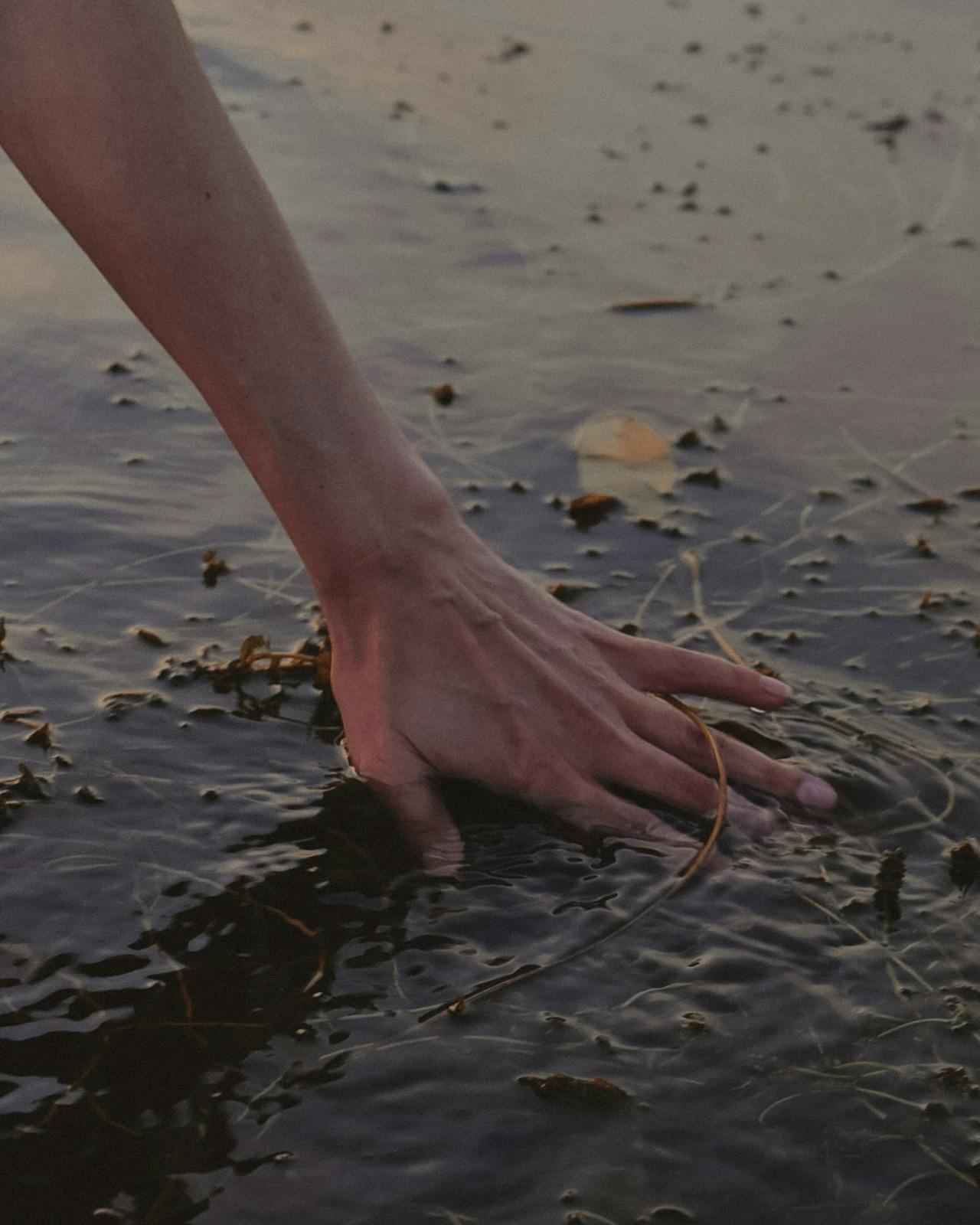The Effects of Dirty Water on Skin

Ever wondered why your skin feels dry, itchy, or irritated after washing your face or stepping out of the shower? The culprit might not be your soap or skincare products, it could actually be the water you’re using. While we often focus on the creams and cleansers we put on our skin, we rarely think about the quality of the water that rinses it all off.
The truth is, dirty or contaminated water can have a significant impact on your skin’s health. Whether it’s polluted tap water, water with high mineral content (also known as hard water), or untreated water from a natural source, the effects can range from mild irritation to serious skin issues.
In this article, we’ll dive into the hidden dangers of using dirty water on your skin. We’ll explore common skin problems linked to contaminated water, the long-term damage it can cause, and what you can do to protect your skin.
What Exactly is Dirty Water?
When we think of dirty water, we usually imagine murky, brownish water filled with visible dirt. But the truth is, water can look clear and still be harmful to your skin. Dirty water refers to any water that contains unwanted substances like bacteria, chemicals, or dirt. It’s not just about how the water looks; it’s about what’s in it.
The following are likely things in water and the form of water that can make it harmful to your skin.
- Pollutants: Water can pick up harmful substances like pesticides or industrial waste as it travels through the environment.
- Bacteria and viruses: Dirty or untreated water often carries germs that can cause infections or irritate your skin.
- Hard water: Hard water is a type of water that has a lot of minerals like calcium and magnesium, which can make it harder for soap to wash off properly, leaving a residue on your skin.
Common sources of dirty water include old or poorly maintained pipes, untreated well water, and even tap water in areas where the supply might not be properly filtered. Sometimes, what seems like regular water can actually be loaded with harmful elements that quietly damage your skin over time.
Common Skin Problems Caused by Dirty Water
Dirty water doesn’t just sit on your skin — it can cause all sorts of annoying and very uncomfortable skin problems. Here are some of the most common skin problems linked to dirty or contaminated water:
- Breakouts and Acne: If your water contains germs or other impurities, these can block your pores, leading to breakouts. Even if you have a great skincare routine, using dirty water can undo all your efforts and result in pimples and blackheads.
- Dry and Itchy Skin: Water that’s full of pollutants or minerals (like hard water) can strip away your skin’s natural oils. This leaves your skin feeling dry, tight, and flaky. It might even start to itch, causing you to scratch and further irritate your skin.
- Rashes and Irritation: Dirty water often contains chemicals and pollutants that can irritate your skin, leading to rashes or redness. Experts agree that exposure to such water can aggravate existing skin conditions and make the skin more sensitive overall.
- Eczema Flare-ups: If you already have skin conditions like eczema, dirty water can make it worse. The chemicals and irritants in the water can cause your eczema to flare up, leading to inflammation, itching, and discomfort.
While some of these problems might seem mild at first, they can get worse over time if the water quality isn’t improved.
Long-Term Damage of Using Dirty Water
While the immediate effects of dirty water on your skin like breakouts or irritation can be frustrating, the long-term damage can be even more concerning. Over time, exposure to pollutants, bacteria, and chemicals can weaken your skin’s natural barrier, leading to chronic dryness, eczema, or even premature ageing.
Globally, about 1 in 3 people lack access to safe drinking water, according to UNICEF and WHO. This widespread issue doesn’t just affect overall health but also subtly impacts the skin. Even in areas where water appears clean, it can carry hidden impurities, such as heavy metals and chemicals from old or poorly maintained pipes, which contribute to long-term skin problems.
How to Protect Your Skin from Dirty Water
While it’s not always possible to control the quality of water, there are several ways you can protect your skin from the harmful effects of dirty water. Take a look at the 6 ways you can protect your skin from the harmful effects of dirty water.
1. Use Water Filters: Installing a water filter on your taps or shower heads can help remove harmful chemicals, bacteria, and excess minerals from your water. This ensures that the water you use is cleaner and safer for your skin.
2. Boil Water: If you suspect that your water might be contaminated, boiling it before use can help kill bacteria and other harmful microorganisms. Allow the water to cool before using it on your skin.
3. Gentle Cleansing: After being exposed to dirty water, wash your skin with a gentle, hydrating cleanser to remove any dirt, bacteria, or leftover residue. This helps to prevent clogged pores and irritation.
4. Moisturise: Since dirty water can strip your skin of its natural oils, it’s important to moisturise regularly. Using a good moisturiser helps to restore hydration and protect your skin’s barrier.
5. Be Careful When Travelling: When visiting places where the water quality may be poor, use bottled or filtered water to wash your face and body. Your skin may not be used to different water sources, so it’s better to stay safe.
6. Avoid Overwashing: If you’re worried about the water quality, avoid overwashing your skin. Frequent washing with dirty water can increase dryness and irritation. Stick to a simple, gentle skincare routine.
Why Clean Water is Essential for Healthy Skin
Clean water isn’t just a basic necessity for drinking; it’s vital for keeping your skin healthy and glowing. Here’s why:
- Hydration: Clean water helps maintain your skin’s moisture. When your skin is properly hydrated, it looks smoother, feels softer, and is less prone to dryness or flakiness. Dirty water, on the other hand, can disrupt this natural balance, leaving your skin dehydrated.
- Protection: Clean water helps your skin stay strong and maintain its natural barrier. This barrier protects your skin from harmful elements like dirt, bacteria, and pollution. When your skin is exposed to dirty water, it can weaken this barrier, making your skin more sensitive and prone to infections or irritation.
- Healthy Glow: Clean water washes away impurities and keeps your pores clear. This helps prevent breakouts and gives your skin a natural, healthy glow. On the contrary, dirty water can clog pores and lead to acne, dark spots, or dull-looking skin.
By using clean, purified water for washing your face and body, you’re not just removing dirt; you’re protecting and nurturing your skin. Clean water is the foundation of good skin health, so it’s important to ensure that the water you’re using is as pure as possible.
Conclusion
Your skin is your body’s first line of defence, and it deserves the best care you can give it starting with clean water. While dirty water can lead to various skin problems, from breakouts, dryness, and irritation to long-term damage, the good news is that there are simple steps you can take to protect your skin.
By understanding the effects of dirty water and taking measures like using filters, moisturising, and being mindful of the water you use, you can keep your skin healthy and glowing.
FAQs:
- How do I know if my water is affecting my skin? If your skin feels unusually dry and irritated, or you’re experiencing more breakouts than usual, your water quality could be the issue. Hard water often leaves a film on your skin, making it feel tight or uncomfortable after washing.
- Can dirty water cause infections? Yes. Dirty water, especially when contaminated with bacteria, can lead to infections, particularly if you have open cuts or sensitive skin.
- What’s the best way to clean my skin if I don’t have access to filtered water? If filtered water isn’t an option, use micellar water or boiled water for cleansing. Additionally, moisturising after washing can help protect your skin from dryness caused by impurities.
- What is micellar water? Micellar water is a gentle, no-rinse cleanser that removes dirt and makeup without the need for tap water. It’s especially useful:in areas where the water quality is questionable.
- Can using dirty water affect my hair as well? Yes, dirty water can also impact your hair. It can leave residues that make your hair look dull and feel dry. Hard water, in particular, can make it difficult to rinse out shampoo and conditioner completely, leading to buildup and potential scalp irritation.
- How can I test my water quality at home? You can use home testing kits available at most hardware or online stores to check for contaminants like chlorine, lead, or bacteria. For a more thorough analysis, consider sending a sample to a certified lab for detailed testing.
- Are there any natural ways to purify water at home? Boiling water is a simple method to kill bacteria and viruses. Additionally, activated charcoal filters can help remove impurities. However, these methods may not remove all contaminants, so consider using a certified water filter for comprehensive purification.
- What types of water filters are best for skin health? Look for filters that can remove chlorine, heavy metals, and sediments. Carbon filters are effective for removing chlorine and some chemicals, while reverse osmosis systems offer more comprehensive filtration, including heavy metals and other impurities.
- How often should I replace water filters? Follow the manufacturer’s recommendations for your specific filter. Typically, filters should be replaced every 6 to 12 months, but this can vary based on water quality and usage.
Now that you know how dirty water can affect your skin, it’s time to take control. Invest in water filters, and use purified water when necessary. Clean water isn’t about hydration alone, it’s also about keeping your skin healthy and glowing.
Never forget this – your skin reflects what it’s exposed to, so be kind to yourself and treat your skin to the purest, cleanest care possible.
References:
1. U.S. Geological Survey. 2018. Hardness of Water. https://www.usgs.gov/special-topics/water-science-school/science/hardness-water
2. U.S. CENTERS FOR DISEASE CONTROL AND PREVENTION. Preventing Hot Tub Rash. https://www.cdc.gov/healthy-swimming/prevention/preventing-hot-tub-rash.html#
3. Rayne Water. 2024. A Guide to the Effects of Hard Water on Skin. https://www.raynewater.com/blog/a-guide-to-the-effects-of-hard-water-on-skin/
4. Medical News Today. 2020. What effects does Water pollution have on human health?https://www.medicalnewstoday.com/articles/water-pollution-and-human-health#water-pollution-and-human-health
5. Springwell water. 2024. 6 Water Contaminants That May Irritate Your Skin. https://www.springwellwater.com/6-toxic-water-contaminants-that-may-irritate-your-skin/
6. Bochynska, Stefania et al. 2024. The impact of water pollution on the health of older people. Maturitas, Volume 185, 107981 https://doi.org/10.1016/j.maturitas.2024.107981
7. World Health Organization. 2019. News release. https://www.who.int/news/item/18-06-2019-1-in-3-people-globally-do-not-have-access-to-safe-drinking-water-unicef-who
8. U.S. CENTERS FOR DISEASE CONTROL AND PREVENTION. 2023. Choosing Home Water Filters & Other Water Treatment Systems. https://www.cdc.gov/healthywater/drinking/home-water-treatment/water-filters.html
9. Fresh Water Systems. 2023. What Is a Reverse Osmosis System and How Does It Work?https://www.freshwatersystems.com/blogs/blog/what-is-reverse-osmosis






